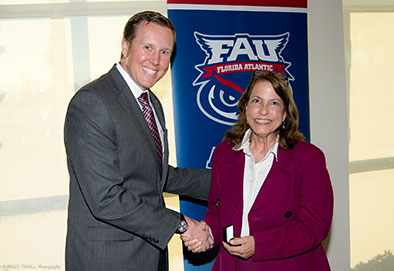Lisa Wiese

Lisa Wiese, PhD, RN, PHNA-BC, CNE, Associate Professor, was inspired to study Alzheimer's disease. (AD) after her own mother, a former coal mine executive in West Virginia, was diagnosed with the illness. The primary care provider prescribed medications, despite some controversy as to their effectiveness, and Lisa's mother was able to avoid institutionalization until she died seven years later. Dr. Wiese states, "I want to help people who are at risk of AD to be aware of the importance of early diagnosis and treatment. This provides them, the opportunity to make lifestyle changes that may delay disease onset or progression, receive treatment for symptoms and other illnesses that may exacerbate the illness, and plan for future care needs, so they can age in place and have a greater quality of life."
Early in her research, Dr. Wiese learned there was no AD measurement tool for rural residents or underserved populations, so for her PhD. dissertation, she developed the Basic Knowledge of AD (BKAD) assessment. This measure, also available in Spanish and Haitian Creole, is used for identifying knowledge gaps to inform development of culturally effective education programs. Education is followed by brief voluntary cognitive memory screening. If the screening is positive, patients are encouraged to follow up for additional testing. In her research, 68% of those with positive results followed up with their provider, and she continues to investigate barriers to follow up. She hopes her research will lead to greater access to brain health education, screening, early detection, and intervention for rural or underserved communities, so more people can age in place, care costs decrease, and caregiver burden lessens.
Today, her research extends to the communities of Canal Point, South Bay, Pahokee and Belle Glade in Palm Beach County. Over the past year during the pandemic, Wiese and her team continued to engage trusted members of church congregations to assist in outreach to overcome distance and continue utilization of the BKAD assessment. They attended virtual church services, conducted radio broadcasts, and changed assessments from in-person interviews to virtual, working mostly by phone and also by Zoom. A hybrid approach to the research is being utilized through 2021.
